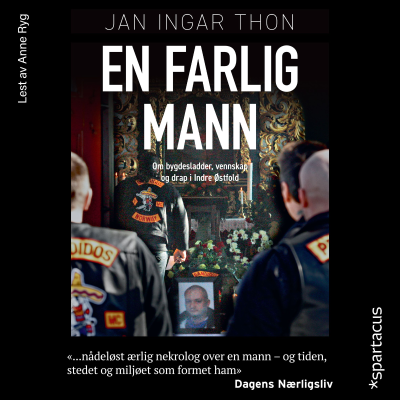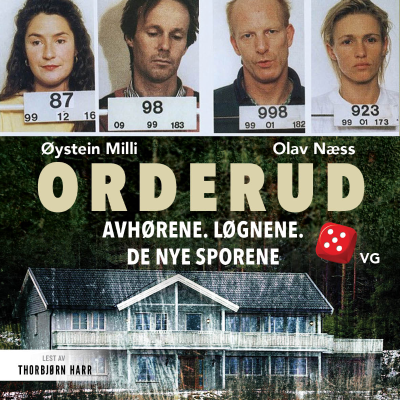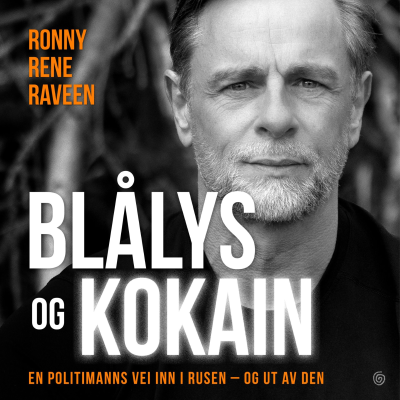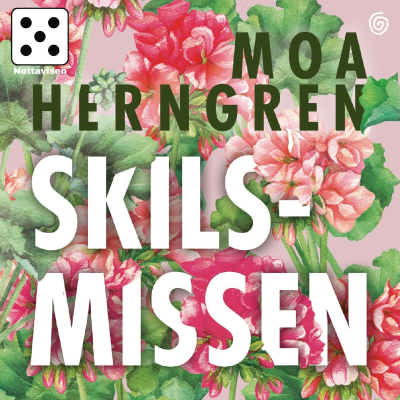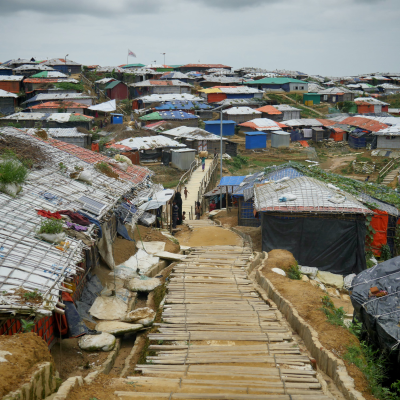
Kutupalong Podcast
null-null
Dokumentar
Prøv gratis i 14 dager
99 kr / Måned etter prøveperioden.Avslutt når som helst.
- 20 timer lydbøker i måneden
- Eksklusive podkaster
- Gratis podkaster
Les mer Kutupalong Podcast
News and views about Rohingya refugees. Podcasts in English and Rohingya language. rohingya.substack.com
Alle episoder
9 EpisoderMyanmar Elections 2020- A Rohingya Perspective
Veteran Rohingya politician Abu Tahay gives his perspective on the 2020 Myanmar elections. Presented by Sumaiya. Interviewed by Shafiur Rahman. Abu Taher or Tahay is a long established Rohingya politician. He is the Chairman of the Union National Development Party (UNDP). UNDP has not been granted registration by the Myanmar authorities. UNDP applied for registration in 2013 and was finally rejected by the government in 2019. Abu Tahay was detained in 1989 for six months. In 2010, despite being elected at the polls, the government prevented Tahay from becoming an MP. Questions: Aung San Suu Kyi’s party has won this election. Yet in the last few years there have been some catastrophes: the Rakhine “clearance operations”, conflict in various states, harassment of human rights workers and journalists. Do you think the Burmese public care about these issues? Aung San Suu Kyi has had a very humiliating 3 years in the international arena. Do you think this victory will help her aim of gaining international legitimacy? Or is her real aim domestic legitimacy and supremacy? Were the elections Free and Fair in Rakhine state? Have people been able to vote? Arakan National Party and Arakan Front Party - how do they view Rohingya people? Aung San Suu Kyi will probably emerge stronger - so do you think she will make any of the changes the Kofi Annan commission recommended? Do you think her policies will change in terms of the Rohingya in IDP camps or the repatriation of Rohingya from the camps? What positive changes do you think will come from her? What happened to Rohingya candidates in this election? What about other muslim candidates? Did other muslims face discrimination? Do you think Aung San Suu Kyi is going to go from being a democracy icon to a dictator trying to hold together a sham democracy? Subscribe at rohingya.substack.com [https://rohingya.substack.com?utm_medium=podcast]
Escape from Tula Toli
How a former Myanmar military man, who converted to Islam & married a Rohingya woman, escaped from Tula Toli. Podcast with Mabia, his widow The carnage that took place in Tula Toli in Myanmar on 30 August 2017 has produced some remarkable stories of survival and defiance. One of these is the story of Nojumu Islam. Born in Yangon, he was a military man and lived with his Rakhine wife in Wut Kyein near Tula Toli . He converted to Islam out of his own volition in 2002, and two years later, whilst at a Muslim gathering in Tula Toli was introduced to Mabia, a Rohingya woman, by a moulvi. His story is remarkable not just because he was a Bamar who converted to Islam and married a Rohingya woman but also because of the attempt to reconvert him to Buddhism by the security forces operating in Tula Toli. His escape from their clutches is also nothing short of epic. During the clearance operations launched by the Tatmadaw (Myanmar military) in August 2017, Tula Toli was razed to the ground and hundreds of Rohingya were massacred. Significantly, even the Burmese government now accepts that there were very high numbers of deaths in Tula Toli. Three days before the massacre, Nojumu was lifted by members of the BGP ( Burmese border force) from his home and forcibly taken to the BGP barracks near the Rakhine hamlet of Tula Toli. Nojumu himself explained, when he was still alive, that the reason for apprehending him was an attempt to get him to turn his back on Islam and return to his original faith, Buddhism. It was clear that the BGP knew what was about to befall Tula Toli, and so they snatched him for his protection and for his reconversion. According to Mabia, Nojumu was incarcerated for one month and three days. The story of their reunion in the refugee camps of Bangladesh, after one month and nine days, is extraordinary. Nojumu escaped his captivity when his guards left him to attend the Dool Poornimar religious festival. He crossed the Purma river, near Dokhin Fara ( the hamlet closest to the BGP barracks) and made for an Ahmaddiya Madrassah in Sadullah char (picture below) Myanmar border guards, the BGP, spotted him. They called out to him and when he failed to stop they fired six rounds. Nojumu was unhurt and managed to make his way to Maungdaw town. His intention was to withdraw some money as he received a military pension. Whilst in Maungdaw he unexpectedly met his adult son ( from his first wife). Nojumu informed him that his objective was to go to Yangon. The son asked Nojumu if he needed money and then offered to go and get some. Whilst his son was gone, Nojumu had some concerns. He feared that he would be taken back to the BGP barracks. He did not wait for his son’s return and instead headed for the border. He crossed the channel into Bangladesh at Shaporir Deep, the obvious crossing point from Maungdaw. Once in Bangladesh, the BGB ( Border Guard Bangladesh) apprehended him. His appearance suggested to them that he was Rakhine, and they wondered why he was crossing into Bangladesh. In detention, he was able to phone Mabia’s sister in Malaysia. He convinced the BGB that he was married to a Rohingya woman and that she was in the camps with their children having escaped mass slaugther. And that he could prove his connection to her if they allowed him to make a phone call. Fortunately they permitted him to do this using a BGB mobile phone. Nojumu had memorised the sister’s number and got through to her. She in turn alerted Mabia of Nojumu’s presence in Bangladesh. Mabia immediately went to Teknaf and got him released. He died on 11 August 2018 with tuberculosis. His time in Bangladesh was not a happy one, and he suffered from various ailments including an injury he sustained in captivity. In this podcast, Mabia, the woman he was married to for 16 years, remembers her husband. Interview: Noor Hossain Production: Mojaffor Ahmed Text: Shafiur Rahman Subscribe at rohingya.substack.com [https://rohingya.substack.com?utm_medium=podcast]
Internet ban during the pandemic risks disaster- Rohingya
On 22nd August of 2019, following a failed repatriation attempt, Foreign Minister A K Momen told journalists [https://www.channel24bd.tv/news24/article/132136/%E0%A6%B0%E0%A7%8B%E0%A6%B9%E0%A6%BF%E0%A6%99%E0%A7%8D%E0%A6%97%E0%A6%BE%E0%A6%A6%E0%A7%87%E0%A6%B0-%E0%A6%86%E0%A6%B0%E0%A6%BE%E0%A6%AE-%E0%A6%95%E0%A6%AE%E0%A6%BE%E0%A6%A8%E0%A7%8B-%E0%A6%B9%E0%A6%AC%E0%A7%87-%E0%A6%AF%E0%A6%BE%E0%A6%A4%E0%A7%87-%E0%A6%AB%E0%A6%BF%E0%A6%B0%E0%A6%A4%E0%A7%87-%E0%A6%B0%E0%A6%BE%E0%A6%9C%E0%A6%BF-%E0%A6%B9%E0%A7%9F:-%E0%A6%AA%E0%A6%B0%E0%A6%B0%E0%A6%BE%E0%A6%B7%E0%A7%8D%E0%A6%9F%E0%A7%8D%E0%A6%B0%E0%A6%AE%E0%A6%A8%E0%A7%8D%E0%A6%A4%E0%A7%8D%E0%A6%B0%E0%A7%80]that he will seek to ‘reduce the comfort of the Rohingya so that they agree to return.” Within two weeks of his statement, Bangladesh authorities moved to ban mobile phone [https://www.aljazeera.com/news/2019/09/bangladesh-bans-mobile-phone-access-rohingya-camps-190902194154637.html] access in the camps, including the stoppage of sim card sales and internet services. Whilst a ban has existed since 2017, it was never enforced. Zakir Hossain Khan, the spokesman for the Bangladesh Telecommunication Regulatory Commission, gave the telecoms companies 7 days to comply. In summary, the Bangladeshi government cut access to 3G and 4G cellular services in the refugee camp areas of Teknaf and Ukhia. Refugee Views In this episode, we speak to a Rohingya refugee from Kutupalong camp as well as a refugee from the No Man’s Land settlement. They describe how the harshness of refugee life has been compounded by being unable to communicate with family and loved ones. The Coronavirus pandemic has created a worldwide emergency. At the time of writing, Bangladesh has reported [https://bdnews24.com/bangladesh/2020/04/01/bangladesh-reports-6th-coronavirus-death-as-infections-rise-to-54] over 50 infections and 6 deaths due to the virus. On 2 April, 50 organisations wrote [https://www.fortifyrights.org/downloads/Joint%20Letter%20-%20Restrictions%20on%20Communication%2C%20Fencing%2C%20and%20COVID-19%20in%20Cox%E2%80%99s%20Bazar%20District%20Rohingya%20Refugee%20Camps.pdf]to Prime Minister Sheikh Hasina of Bangladesh requesting the restoration of internet services. In this regard we spoke to Dr Ambia Perveen [http://twitter.com/AmbiaPerveen], a Rohingya physician based in Germany, about the pressing need for internet access during the coronavirus crisis. She argues that: “Health is a human right. Awareness and information is vital now. And for that you need the internet. This is critically important not only for Rohingya but for their host community neighbours also.” We also asked Nay San Lwin [http://twitter.com/nslwin], a Rohingya activist, also based in Germany . He said that: “Restoration of the internet would provide assurance for everyone. It will promote compliance with health strategies that the camp authorities might want to implement and importantly prevent panic.” Aid Community Views The Inter Sector Coordination Group, the central coordination body for humanitarian agencies serving Rohingya refugees in Cox’s Bazar, has repeatedly stated in its sitreps that “UN agencies, Government representatives, NGOs and the entire ecosystem supporting refugees from within and around the camps struggles with basic communication and security telecommunications services.” They have additionally noted that “Rohingya women continue to report facing additional risks, threats and barriers due to lack of access to mobile network, having SIM cards confiscated ..” In this context, we hear from an NGO worker regarding the disruptive impact of the ban on her daily work. Additionally, we asked UNHCR for a comment. Louise Donovan told Kutupalong Podcast that Mobile and internet technology has been an important way for refugees to communicate with family and friends, as well as with humanitarian agencies regarding protection issues. Lack of connectivity also affects the ability of humanitarian agencies to disseminate information to refugees, get in touch with those who need help and to coordinate our own response in emergency situations. We have raised these challenges with the Government and understand that they are reviewing the situation. Finally we asked George McLeod whether IOM had any comment on this matter. He sent us a short WhatsApp message. “I was given to understand the 3g blockage would be lifted , but saw when I visited the camps that it is still in place.” Presenter: Mirza Galib Reporter: Nur Hossain Subscribe at rohingya.substack.com [https://rohingya.substack.com?utm_medium=podcast]
COVID19 - A message for Rohingya in Myanmar, Bangladesh and Myanmar.
19 March 2020 Rohingya activist Nay San Lwin talks about the coronavirus pandemic (in Rohingya language). He sends a message to his fellow Rohingya in Myanmar, and to the refugees in Bangladesh and Malaysia. He highlights the complete absence of information around Covid-19 in Myanmar, and requests Rohingya to carefully heed the advice given by humanitarian organisations and also by Rohingya doctors based in Europe. Salam, I am Nay San Lwin. I am speaking to you from Germany. There is a new disease in this world. It is called coronavirus or covid19. Many thousands of people have died. To all my Rohingya brothers and sisters, you need to be very alert about this disease. It causes a very high fever, coughing and difficulty in breathing. Many people will not suffer much. Their symptoms will be mild. But older people are very vulnerable. You all need to be careful. This disease can be passed from one person to another very quickly. It doesn’t matter if you are young or old. This disease is very easy to transmit from one person to another. If you are in Burma or Bangladesh Or Malaysia, please listen carefully. Firstly, To all my brothers and sisters in Myanmar, i need to tell you that the Myanmar government is not giving you any information. Aung San Suu Kyi and her ministers have not been open. No one knows what is happening in Myanmar. We do not know if the virus is present or not. It is important for you to listen to the advice in Rohingya language which Rohingya doctors and others have made available on the internet. Be very alert about the symptoms and please follow the advice that has been given. If you are in Bangladesh, then please listen to the Rohingya organisations and NGOs who are informing people about this disease. Please follow the instructions given to you about how to keep yourself safe. Please inform the clinic nearest to you if you think you are suffering coronavirus. The Bangladesh authorities have taken some steps to help you. Finally, I want to speak to those of you who are in Malaysia. Please seek medical help if you are suffering any of the symptoms. It is very important for your family, for the Rohingya community and for Malaysians too. Do not keep quiet. That would be dangerous for you and those around you. This is a difficult time for all Rohingya and for all the world. I pray for your good health. Subscribe at rohingya.substack.com [https://rohingya.substack.com?utm_medium=podcast]
Coronavirus & what Rohingya refugees need to know
Podcast with Dr Hla Kyaw Khubybe News of the coronavirus or COVID-19 has dominated headlines throughout the world. Yet in the Rohingya refugee camps of Bangladesh, with internet access barred because of a recent government order, knowledge and information about the virus is very limited. The camps are located in south eastern Bangladesh, a district with fragile public health care facilities. The camps are also overcrowded, and lack proper sanitation and decent healthcare facilities. COVID-19 therefore represents a real risk to the refugee population. There are as yet no confirmed cases of COVID-19 within Bangladesh. The Bangladesh government has taken certain measures including setting up coronavirus sample collection points in all 64 districts and 29 ports of entry. Additionally, Bangladesh is not issuing “on arrival” visas to Chinese nationals. However it has not banned entry to foreign nationals who have visited China. Bangladesh also, to its credit, accepted the return of 325 Bangladeshi workers from Wuhan, the Chinese city at the epicentre of the disease. According to this Arab News [https://www.arabnews.com/node/1635841/world] report “Hundreds of health workers in the camp area are receiving training to improve disease outbreak detection and prevention. Isolation wards have also been set up.” We talked to Dr Hla Kyaw Khubybe, a Netherlands-based Rohingya physician and Chair of the European Rohingya Council. We asked him what the disease is and what refugees in the camps should know and try to do about it. Read more HERE [https://medium.com/kutupalong/coronavirus-what-rohingya-refugees-need-to-know-21734c2aec06] Mirza Galib is the presenter. Dr Hla Khubybe was interviewed by Shafiur Rahman. This podcast will be available on Youtube and various Rohingya whatsapp groups. Subscribe at rohingya.substack.com [https://rohingya.substack.com?utm_medium=podcast]
Velg abonnementet ditt
Premium
20 timer lydbøker
Eksklusive podkaster
Gratis podkaster
Avslutt når som helst
Prøv gratis i 14 dager
Deretter 99 kr / måned
Premium Plus
100 timer lydbøker
Eksklusive podkaster
Gratis podkaster
Avslutt når som helst
Prøv gratis i 14 dager
Deretter 169 kr / måned
Prøv gratis i 14 dager. 99 kr / Måned etter prøveperioden. Avslutt når som helst.
























